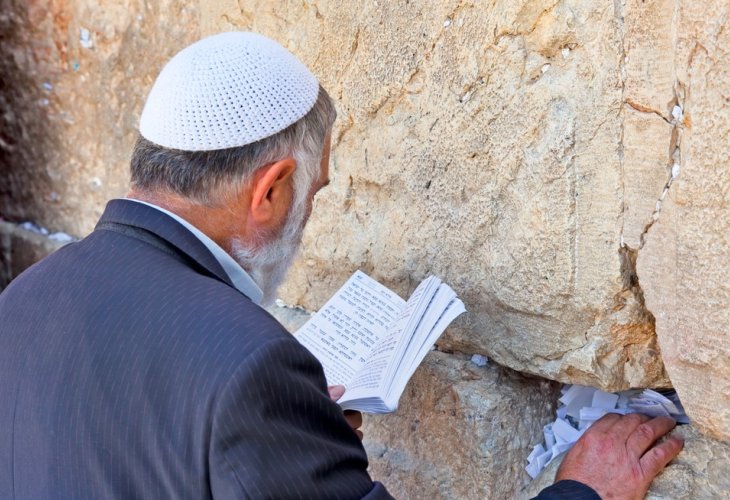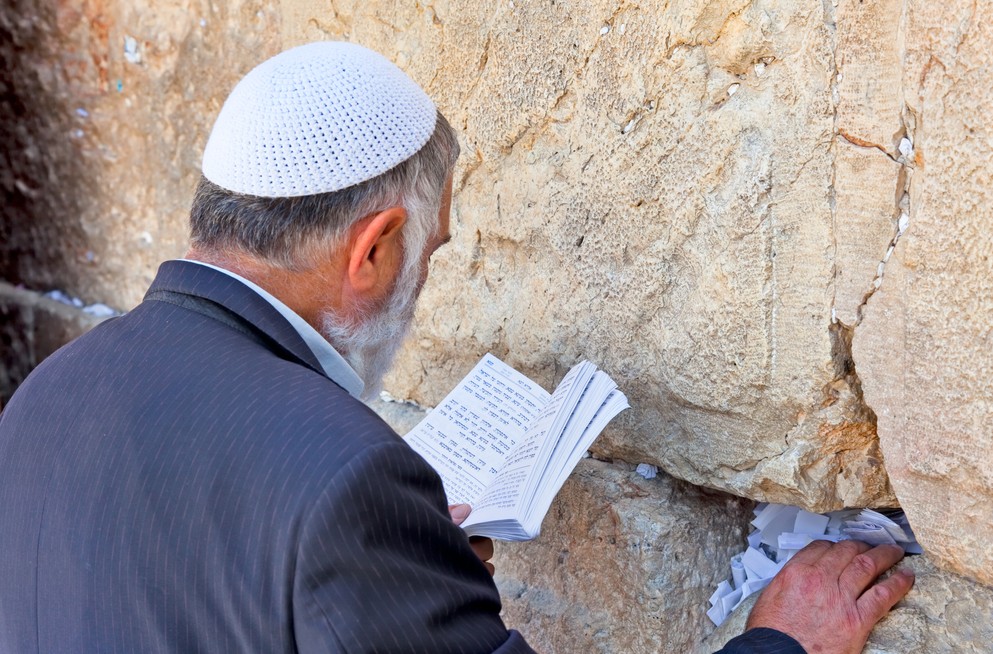Facts in Judaism
Why Is It Called 'Service of the Heart'? Insights into Prayer
10 Moving Quotes About Prayer, the Service of the Heart
- Naama Green
- |Updated

1. In Mesillat Yesharim chapter 19, it is written: "First - that one stands literally before the Creator, blessed be His name, and converses with Him, even though the human eye cannot see Him. One must contemplate His exaltedness, which is beyond all blessing and prayer... Considering all this, it is impossible not to tremble in one's heart and not be shaken while speaking before the Blessed One, mentioning His name, and seeking to please Him."
The book "Service of the Heart," explains why prayer is called "service": "Prayer is the service of the heart and expression of lips. To establish in one's heart the truth of how one approaches Hashem, interacts directly with Him, pleads before Him, and makes requests of Him. And Hashem listens, attending to one's words."
2. The Zohar explains the chambers in the Garden of Eden. About one of the chambers, it writes: "In this chamber are all those who suffered afflictions and illnesses in this world to be rectified through complete repentance, and who would thank and praise their Master every day, and never neglect their prayers." (Genesis 2:14)
3. The Zohar further states: "'Hear my prayer, O Lord' - this is prayer in a whisper (the Amidah prayer recited silently), 'and give ear unto my cry' - this is prayer (with a raised voice), when a person raises his voice in prayer and lifts his eyes upward, this prayer breaks through gates. 'Hold not Thy peace at my tears' - this is the prayer that enters before the King and no gate stands before it, and a prayer with tears never returns empty."
4. In the Midrash Tanchuma, Hashem's words are quoted: "Said Hashem, Be careful with prayer for there is no attribute more beautiful than it, and even if a person is not worthy of receiving kindness, I will act kindly with him, for all My ways are kindness."
 (Photo: shutterstock)
(Photo: shutterstock)5. It is also said: "Abba Yudan of Sidon said in the name of Rabban Gamliel: How do we know that a person should not say, 'I am not worthy to pray for the Temple and for the Land of Israel'? Scripture teaches, 'I will surely hear his cry.' Which measure is greater, the measure of goodness or the measure of punishment? Surely the measure of goodness is greater. If with the lesser measure of punishment an individual prays and Hashem hears his prayer, then with the greater measure of goodness, it is certain that when an individual prays, Hashem hears his prayer."
6. The Midrash Shocher Tov notes: "Hashem said to Israel: My children, while the gates of prayer are open, engage in prayer and repentance, for I accept gifts in this world, but when I sit in judgment in the World to Come, I do not accept gifts."
7. About the power of prayer, the Midrash relates: "There was a story of a kohen (priest) who feared Heaven in secret, and all the good deeds he did were done in secret. He had ten children from one wife, six males and four females. Every day he would pray, prostrate himself, seek mercy, and lick the dust with his tongue so that none of them would commit a sin or do anything improper. They said that year did not pass, nor the second or third year, until Ezra came and Hashem brought Israel up from Babylon through him, and that kohen was among them. And that kohen did not depart from this world until he saw Kohanim Gedolim (High Priests) and young kohanim from his children and grandchildren for fifty years."
8. In Tanna D'vei Eliyahu it is stated: "Hashem said to Moshe: If there is a Torah scholar in a generation who has the ability to absolve Israel of their obligations, he should not become haughty and refrain from praying for Israel. Rather, he should look to Me, for there was no partner with Me in the act of Creation, yet I descended and revealed the order of forgiveness to Moshe. So from Me let all who come into the world learn, and whoever can absolve Israel of their obligations, when he does so, I give them good reward. And when Israel gathers before Me and stands before Me as one group and recites the order of forgiveness, I will answer them, as it says (Psalms 20), 'May the Lord answer you in the day of trouble.'" (Chapter 23)
9. The "Chafetz Chaim" notes: "One should add an additional internal prayer every day, beyond the Shemoneh Esreh, and this prayer should come from the walls of one's heart, for such a prayer will certainly be focused with the necessary completeness. A person should not be satisfied with three prayers a day, but several times throughout the day should pour out prayers and requests in private when at home, from the depths of the heart, and such a prayer will certainly not return empty."
10. The Zohar writes that while on weekdays, a person's prayer ascends upward through the angels Nuriel, Michael, and Gabriel, on Shabbat, Hashem Himself descends to receive the Shabbat prayers.

